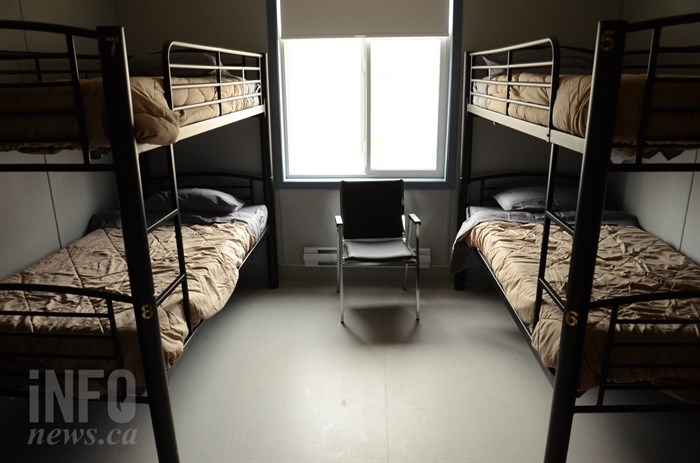Okanagan society working to keep people out of shelters one landlord at a time

Helping people avoid homelessness in the Central and North Okanagan is a prime focus of Turning Points Collaborative Society but it can’t always prevent people from having to go to emergency shelters or camp out somewhere.
Now, due to some fundraising efforts that have created a “kitty” of almost $72,000, the society will be able to find housing for 20 people this year in its scattered sites program. If all goes well, that will increase by 20 more people each year without the need to raise more funds.
"It’s really a prevention piece,” Tara Tschritter, Turning Points’ regional director of the Central and Southern Interior, told iNFOnew.ca. “It helps people not get entrenched in homelessness. I don’t know if you’ve spent any time in a homeless shelter. It’s not the healthiest place to be. So, if you can grab people before they end up there, it can make a world of difference.”
By getting people into housing, it can avoid the trauma of homelessness that can contribute to people developing complex mental health and addiction issues that can make it much more difficult for them to be housed.
READ MORE: Here’s what it costs to house the homeless
The program is funded by a $50,000 donation from Kelowna-based developer Highstreet and money raised at a comedy night.
The plan is to match tenants with willing landlords to get them into market rental housing with the aid of provincial government rental supports. It becomes a win-win for both the landlord and the tenant.
“We have people come to our rapid rehousing program where we’re able to vet them to make sure they’ll be good tenants,” Tschritter said. “They’re clean, respectful and all of those things because they’ve been through our program. We know how they do in housing. Then we’re able to refer them on to our scattered sites program.”
Some in the scattered sites program will come from government-funded motel rooms where they’ve been staying this winter in order to free up space in emergency shelters. Or they may come from the shelters themselves.
So, how is this good for landlords?
“One of the things about being a landlord is, you can do whatever you want to vet people but you never truly know,” Tschritter said. “When you get a referral from our program, you know that they’ve been in our program and we’ve been working with them so we do that screening piece.
“But we are also a support. Say, if somebody has a mental health crises or they’re not doing well, generally property managers don’t have the capacity or the knowhow to support that person. So, now, they’ve got an agency to call and we can come in and we can support them so it doesn’t end up jeopardizing that person’s tenancy.”
Turning Points co-signs the lease for one year. After that, the tenant is on their own to continue living in their new home.
“When you co-sign a lease for somebody for one year, you’re taking on a risk” Tschritter said. “If there’s any rent missed or any damages, we’re responsible in that year. So, in order to be able to do our due diligence, we have to have a kitty in the bank for each person we put in that program. The cool thing is, if we don’t spend that money, then in one year’s time, we can use that same sort of insurance we have in the bank to put another person in that program.
An existing scattered sites program was stared with a small kitty with five people. None of that money had to be spent.
“It’s a good indicator that our screening is working,” Tschritter said.
READ MORE: Shelter operators sick of Interior Health not doing its share
The key now is to build relationships with landlords to get them on board.
While Deven Properties has been supportive, so have smaller landlords who may, for example, have a suite to rent in a house.
“We’ve got a ton of seniors come through our program,” Tschritter said. “People with disabilities match up nicely.”
To contact a reporter for this story, email Rob Munro or call 250-808-0143 or email the editor. You can also submit photos, videos or news tips to the newsroom and be entered to win a monthly prize draw.
We welcome your comments and opinions on our stories but play nice. We won't censor or delete comments unless they contain off-topic statements or links, unnecessary vulgarity, false facts, spam or obviously fake profiles. If you have any concerns about what you see in comments, email the editor in the link above.



